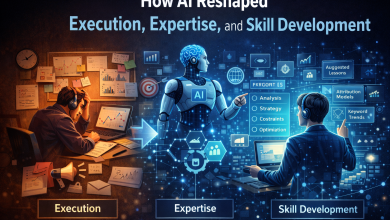
With the digital business arena becoming increasingly competitive, companies are discovering that attracting new customers is not the only factor that makes them successful; the real secret is how to retain customers. In the online entertainment industry, customer loyalty has a direct impact on income. Competition has become more intense than ever before, and customer churn reduction strategies are thus essential to survival. Of late, there has been an upsurge of artificial intelligence (AI) as a critical customer retention tool, which is capable of providing customer-specific experiences based on client data and active in predictive analysis to prevent churn.
Non-Monetary Customer Retention Strategies
Many people assume that online entertainment platforms retain customers solely through financial rewards, but in reality, a variety of approaches are used. For instance, as noted by Mike Epifani in his article about the top Sweepstakes casino sites available in the US for August 2025, these platforms strengthen customer loyalty through methods that go beyond simple cash incentives. AI analyzes customer preferences to recommend personalized games or events, while bonus systems provide non-monetary rewards such as free trial credits or invitations to special events. This approach helps customers feel like active participants rather than just consumers, fostering long-term loyalty.
Furthermore, AI can design gamification elements and achievement systems that keep customers engaged by providing enjoyment and a sense of challenge. In highly competitive environments, these strategies serve as a key tool for platforms to deliver differentiated and memorable experiences.
Predictive Analytics Using Customer Data
Another crucial area of customer retention is identifying potential churn before it occurs and responding appropriately. By leveraging a wide range of data—including past purchase history, login frequency, payment patterns, customer service inquiries, time spent on websites, and app usage habits—AI can accurately predict when a customer is most likely to leave. For example, the system may detect gradual declines in login activity or unexpected shifts in payment behavior, flagging them as potential risk indicators and alerting the company in advance. Based on these forecasts, businesses can offer personalized promotions or have customer service teams proactively reach out to address concerns, resolve issues, and reinforce satisfaction.
In practice, U.S. telecom company Verizon used generative AI to prevent 100,000 customers from leaving its service in 2024 alone, resulting in significantly improved customer experience and enhanced loyalty. This proactive and strategic approach goes far beyond merely retaining customers; it resolves problems early, maximizes overall satisfaction, strengthens long-term loyalty, and provides a critical mechanism for companies to respond swiftly to changing market dynamics and evolving customer behaviors.
Real-Time Interaction and the Evolution of Chatbots
Real-time interaction is an essential factor in improving the overall customer experience, as it allows users to receive immediate assistance whenever they need it, addressing questions, concerns, or technical issues without delay. Advanced AI tools, including chatbots, have evolved well beyond basic FAQ responses, offering personalized guidance, tailored solutions, proactive problem resolution, and even recommendations based on individual user behavior.
On platforms serving multinational audiences, multilingual chatbots are particularly valuable, addressing concerns instantly, preventing potential frustrations, facilitating smoother communication across different languages, and ensuring seamless, uninterrupted interactions. By consistently meeting these expectations, platforms not only enhance customer satisfaction but also foster long-term loyalty, trust, and a stronger emotional connection between the user and the service, ultimately supporting more effective retention and engagement strategies while adapting to ever-changing customer needs and preferences.
Emotional Connection Through Sentiment Analysis
AI can analyze customer feedback, reviews, and social media mentions to understand their emotional state. Strategies that respond to positive feedback with rewards or thank-you messages, and address negative feedback promptly, go beyond technical retention tactics and help strengthen an emotional connection with customers. This concept is similar to the principle of reciprocity—people naturally feel inclined to return favors or positive gestures, and are more likely to take positive actions when treated kindly.
At any point that the customer rates something positively, companies can use AI to send the customer thank-you messages or other rewards. This strategy can reach the reciprocity instinct of the customers, where they may be prompted to engage more and be more loyal. This means that customers will feel that this is a platform that respects and understands them, leading to long-term loyalty.
Gamification and Engagement Enhancement
Fun and engagement play a crucial role in customer retention. AI can design personalized reward systems or incorporate gamification elements based on customer data. For example, by analyzing behavior patterns, engagement frequency, purchase history, and content preferences, platforms can offer personalized missions, points, or badges as incentives, encouraging users to actively interact with the platform rather than just consuming its services. This strategy is particularly effective for entertainment platforms, social media, and online education services. Higher engagement naturally leads to increased customer satisfaction and loyalty, while reducing the likelihood of churn.
AI-powered systems can also provide timely, personalized rewards based on real-time data analysis, helping users maintain ongoing interest. Over the long term, this approach enriches the customer experience, reinforces positive perceptions of the service, and achieves both goals of attracting new customers and retaining existing ones. Leveraging fun through AI-driven retention strategies has thus become a key tool for enhancing a company’s competitive edge.
Evolving Roles of AI in Actively Shaping Customer Retention
AI is poised to play an increasingly sophisticated and multifaceted role in customer retention strategies, shaping the way businesses interact with their audiences. By combining real-time analysis of customer data, advanced predictive models, and highly personalized experiences tailored to individual preferences, companies can transform their relationships with customers into ongoing, interactive partnerships rather than simple, one-time transactions. In an era of intensifying digital competition, businesses that effectively leverage AI, continuously refine their approaches, and respond quickly to shifting trends and consumer behaviors are better positioned to maintain customer loyalty, foster long-term growth, and strengthen the overall trust and satisfaction of their user base while remaining adaptable to constantly evolving expectations.





